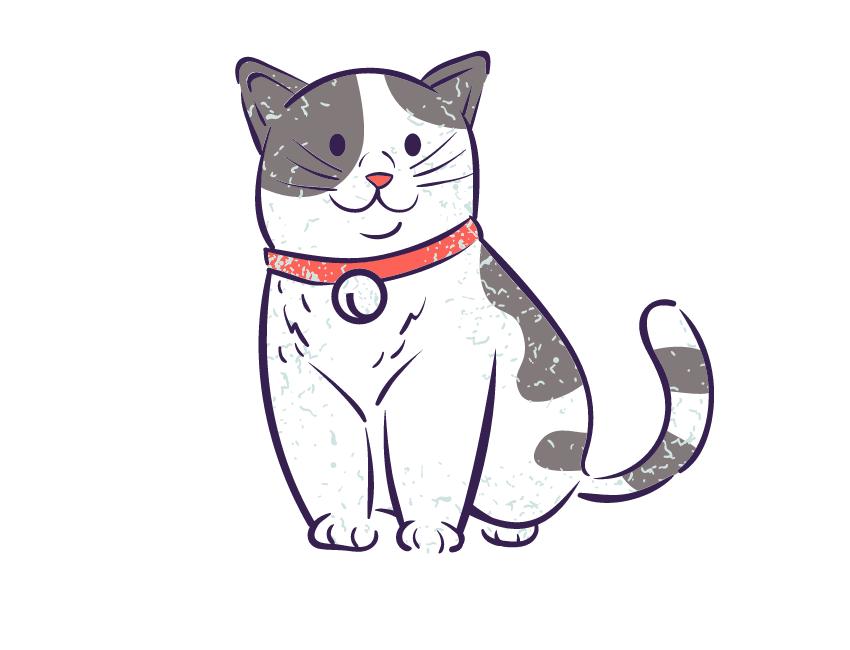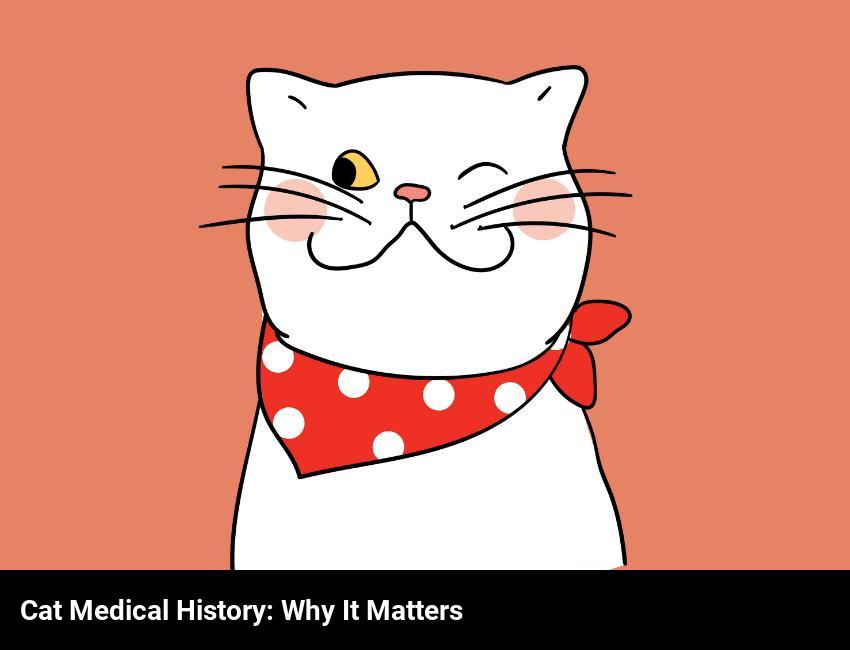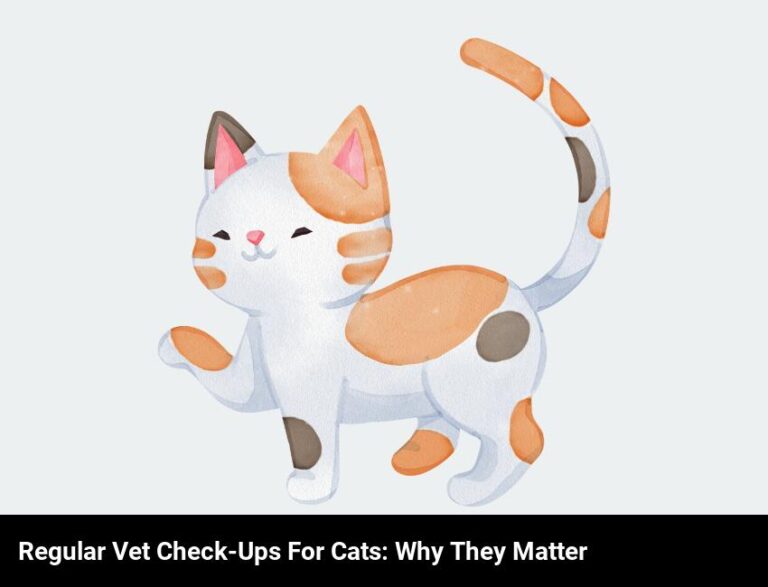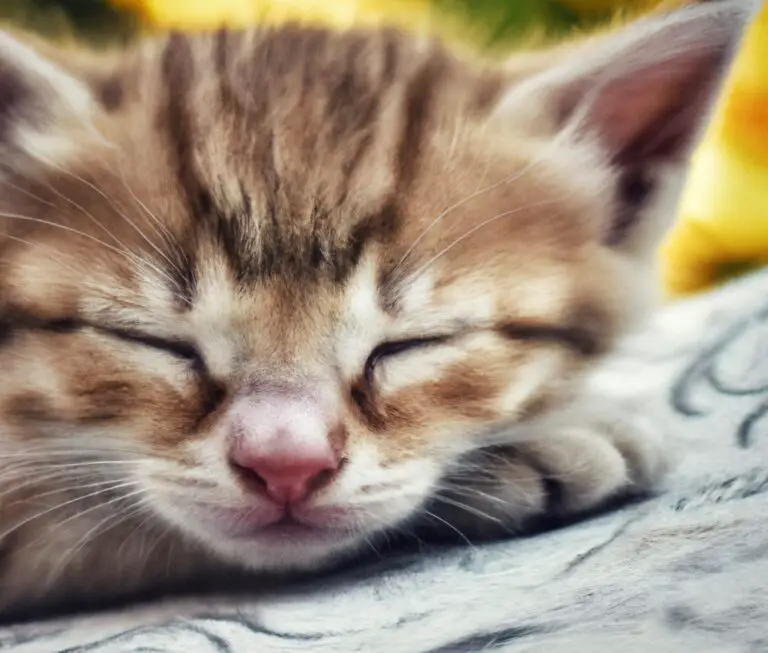The Importance Of Knowing Your Cat’S Medical History
It is important to have an understanding of your cat’s medical history in order to provide the best possible care. Knowing the cat’s past health issues, medications, vaccinations, and any allergies can help you to make informed decisions about their health and well-being.
My cat is my best friend and I want to keep her healthy and happy for as long as possible. That is why I understand the importance of knowing my cat’s medical history. Having a comprehensive and accurate record of my cat’s medical history is essential for her health and wellbeing. Knowing what treatments she has had in the past, what illnesses she has had, and what medications she is currently taking can help me to prevent future health problems.
I also want to be prepared in case of an emergency. Having an up-to-date medical history for my cat can help me to make informed decisions about her care. Knowing what vaccinations she has had, what medical tests have been performed, and what medications she is taking can help me make the best possible decisions for her health and wellbeing.
I know that having a comprehensive and accurate medical history for my cat is important, but I also want to make sure that I am able to access it when I need it. In this blog, I will discuss the importance of knowing your cat’s medical history and provide tips for keeping it organized and accessible. I will also explore the benefits of having an up-to-date record of your cat’s medical history and the potential consequences of not having one.
What kind of information should you have on your cat’s medical history?
It’s important to have a thorough medical history of your cat. This will help the vet quickly assess your cat’s health and provide the best care possible.
First and foremost, you should have your cat’s age, breed and any relevant medical conditions. The vet will also need to know when your cat had their last vaccinations and if they have been spayed or neutered. This will help them determine the types of treatments that are necessary for your cat.
It’s also important to have a list of any medications your cat takes or has taken in the past. If your cat is taking any supplements or vitamins, you should include them as well. Knowing the dosages for any medications or supplements your cat takes is also important.
If you’ve ever taken your cat to the vet for a specific problem, you should also note it in their medical history. This includes any tests, treatments or surgeries that were done. The vet will want to know what your cat’s symptoms were and how they responded to treatments.
Finally, it’s important to keep a detailed record of your cat’s diet. This includes the type of food they eat, how much they eat, and how often they eat. This can help the vet quickly assess any dietary-related medical issues.
Having a comprehensive medical history of your cat is key to providing them with the best care possible. Knowing your cat’s age, breed, medical conditions, medications, and diet is essential. By having this information readily available, your vet can provide the most effective treatment for your cat.
What are the benefits of having a comprehensive and accurate medical history for your cat?
Knowing your cat’s medical history is incredibly important for your pet’s health and well-being, and here are some of the benefits you’ll receive:
- Get a thorough understanding of your cat’s health: An accurate medical history helps you know exactly what is normal for your pet, and that helps you identify any changes more quickly. This also helps your vet to provide the best possible care for your cat.
- Track changes in your cat’s health: Having a comprehensive record of your cat’s medical history allows you to monitor any changes in your pet’s health over the years, so you can be aware of any emerging issues. This helps to reduce the risk of developing serious health problems in the future.
- Prepare for emergencies: With a full understanding of your cat’s medical history, you can be better prepared for any emergency situations that may arise. Knowing your pet’s medical history can help your vet take the necessary steps to provide the best care for your pet quickly and efficiently.
- Make informed decisions about your cat’s health: With a complete understanding of your cat’s medical history, you can make informed decisions about treatments and other medical care for your pet. This helps you to ensure that your cat receives the best possible care.
By having a comprehensive and accurate medical history for your cat, you can provide the best possible care for your pet and be prepared for any health issues that may arise.
What are some practical tips for keeping your cat’s medical history organized and accessible?
Keep all of your cat’s medical records in one central location. This could be physical records or digital records. Keeping all of the information in one place will make it easier to access and review.
•Make sure to include the name of your veterinarian for each visit. This will help you to keep track of the ongoing health care of your cat and to ensure continuity of care.
•Take notes of any medications or treatments your cat is receiving. Record the dosage and frequency. Note any side effects or changes in behavior.
•Write down any questions or concerns you have about your cat’s health and bring them with you to the vet. This will help you to stay on top of any potential health issues and give your vet a better understanding of your cat’s health.
•Keep a list of all the vaccinations your cat has received and when they were given. This will help you to stay up-to-date on any booster shots or other vaccinations your cat may need.
•Schedule regular check-ups with your veterinarian. This will help you to stay on top of your cat’s health and to identify any potential problems early.
Why is it important to keep an up-to-date record of your cat’s medical history?
It’s essential to keep a record of your cat’s medical history to ensure they’re receiving the best possible care. Keeping a detailed record of your cat’s medical history is a great way to make sure that your cat gets any necessary treatments and vaccinations on time. It also helps the vet to monitor your cat’s health, so they can detect any potential health problems quickly.
Having a medical history on hand also makes it easier to keep track of any medications your cat is taking. You can make notes about the dosage, frequency and any side effects, so that you can share this information with your vet if needed. This information could also prove useful in the event of an emergency.
Keeping a record of your cat’s medical history also helps you to notice any changes in their behavior or physical appearance. This can help you to spot any potential health problems quickly and take the necessary steps to get your cat the treatment they need.
Another important reason to keep a record of your cat’s medical history is that it helps you to be organized with their vaccinations and check-ups. You can use the record to keep track of when your cat needs their next appointment and make sure they stay up-to-date with their vaccinations.
Overall, keeping a record of your cat’s medical history is essential for ensuring your cat gets the best possible care. It helps you to keep track of their medications, spot any potential health problems early, and stay organized with their appointments and vaccinations.
How can you ensure that your cat’s medical history is up-to-date?
Knowing your cat’s medical history is essential to ensuring their long-term health and well-being. To do this, it’s important to keep up with regular check-ups and keep your vet informed on any changes in your cat’s behavior or health. Here are a few ways to make sure your cat’s medical history is up-to-date:
- Schedule regular appointments with your vet. Make sure to keep up with regular check-ups, vaccinations, and other preventative care. This will help your vet to have an accurate understanding of your cat’s health and be able to detect any changes in the future.
- Keep a record of your cat’s medical history. Writing down any information you receive from your vet or any other medical professionals can help you keep track of your cat’s medical history and make it easier to reference it when needed.
- Record any changes in your cat’s behavior or health. Any changes in your cat’s behavior or health should be reported to your vet as soon as possible. This will help your vet to determine if there are any potential health issues that need to be addressed.
By following these steps, you can help ensure that your cat’s medical history is up-to-date. This can help you ensure that your cat is receiving the best possible care and stays healthy for years to come.
What kind of information should you include in your cat’s medical history?
Knowing your cat’s medical history can be essential to keeping your pet healthy. That’s why it’s important to document your cat’s medical history as thoroughly as possible. Here’s a list of key information you should include:
- Age: Be sure to document how old your cat is, as this information can help your veterinarian diagnose any health issues that may arise.
- Previous medical conditions: If your cat has had any medical conditions in the past, make sure to write them down. This can help your vet determine if any of these conditions may be related to your cat’s current health.
- Vaccination history: Keep track of when your cat was given their last round of vaccinations and any boosters they may have had.
- Medications: Make sure to document any medications your cat has taken in the past or is currently taking.
- Allergies: Record any known allergies your cat has and the severity of their reactions.
- Hospitalizations: If your cat has been hospitalized in the past, make sure to document the date and the reason they were admitted.
By keeping an accurate record of your cat’s medical history, you can help ensure that your pet is receiving the best possible care. This record can also help your vet to quickly diagnose any health issues that may arise.
How can you use your cat’s medical history to prevent future health problems?
Knowing your cat’s medical history is key to helping them live a happy and healthy life! There are a few ways that you can use your cat’s medical history to prevent future health issues.
First, make sure you stay up to date with your cat’s veterinary check-ups and vaccinations. This will ensure that any potential health issues can be caught and addressed early on. Additionally, if your cat has any pre-existing conditions, it’s important to keep track of any medication or dietary changes that might be recommended.
It’s also a good idea to keep records of any unusual behavior or symptoms your cat might be exhibiting. For example, if your cat is exhibiting signs of distress or lethargy, which could be indicative of an underlying health issue, be sure to document it and bring it up with your vet.
Finally, if your cat has a history of allergies or other chronic conditions, it’s important to be aware of potential triggers. For instance, if your cat is prone to skin allergies, be sure to keep an eye out for potential allergens in your home.
Knowing your cat’s medical history is an essential part of being a responsible pet owner.
What are some potential consequences of not having an accurate and up-to-date medical history for your cat?
Not having an accurate and up-to-date medical history for your cat can have some serious consequences. Firstly, if your cat shows any signs or symptoms of illness or pain, it may be difficult for your veterinarian to provide the right diagnosis and treatment, as they’ll have less information to work with. Secondly, they may not be able to tell if any medications your cat is taking are causing adverse reactions, since they won’t know what drugs your cat has been prescribed in the past. Thirdly, without a clear medical history, your veterinarian may be more likely to overprescribe treatments, as they won’t know what your cat has been previously exposed to.
Most importantly, not having an accurate and up-to-date medical history for your cat can put them at risk of developing serious medical conditions that could have been avoided if the history had been properly documented. For example, without knowing your cat’s previous vaccinations and exposure to parasites, they could contract a serious illness that could have been prevented with the right preventative care. Similarly, not knowing your cat’s past medical history could mean they’re more likely to develop chronic conditions, such as diabetes or heart disease, that could have been managed more effectively with a thorough medical history.
Overall, it’s essential to have an accurate and up-to-date medical history for your cat to provide them with the best possible medical care. Keeping track of your cat’s medical history can help ensure they receive the right diagnosis, treatments, and preventative care, and can save them from developing serious medical conditions.

Frequently Asked Questions
What are the benefits of staying informed about your cat’s medical history?
Staying informed about your cat’s medical history can have numerous benefits. You will have a better understanding of what is normal for your pet, allowing you to recognize changes that may indicate a potential health issue. Additionally, you can use this information to catch problems early on, which can help save time, money and potential stress in the long run. Knowing your cat’s medical history can also help your veterinarian provide a more comprehensive and accurate diagnosis and treatment plan.
How can you best use your cat’s medical history to keep them healthy?
Knowing your cat’s medical history is important to ensure their good health. To make the most of this information, keep records of their vaccinations and other medical treatments, as well as any known health conditions. Additionally, be sure to bring your cat for regular check-ups to ensure that any new issues are identified and addressed quickly. Finally, be proactive about your cat’s health and take the time to ask questions and learn about any behavior or dietary changes that could help keep them healthy.
What steps can you take to make sure your cat’s medical records are up-to-date?
To ensure your cat’s medical records are up-to-date, there are a few steps you can take. Firstly, make sure you take your cat for regular check-ups at the veterinarian and ask for a copy of your cat’s medical history. Secondly, if your cat receives any vaccinations or treatments, keep a record and store it in a safe place. Finally, keep an updated list of any medications and supplements your cat is taking. Taking the time to stay on top of your cat’s medical history will help ensure your cat is healthy and happy.
What are the signs that your cat may have a previously undiagnosed medical condition?
Knowing your cat’s medical history is important in order to be able to detect any previously undiagnosed medical conditions. Signs that your cat may have an underlying medical issue include changes in behavior, such as increased sleeping or decreased activity; changes in eating habits, such as a decrease in appetite; changes in weight; unusual bathroom habits; signs of pain, such as vocalizing or limping; or signs of grooming difficulty, such as matted fur. If you notice any of these signs, it’s important to bring your cat to the vet for an accurate diagnosis and treatment plan.
What are some potential long-term benefits of proactively managing your cat’s medical history?
Proactively managing your cat’s medical history can have long-term benefits for both you and your pet. First, having a full record of your cat’s health allows you to be more prepared for any medical issues that may arise. You can also detect any possible changes in your cat’s health early and take necessary steps to prevent any further complications. Finally, having a full record of your cat’s medical history can help you to make informed decisions about your cat’s future healthcare needs.







